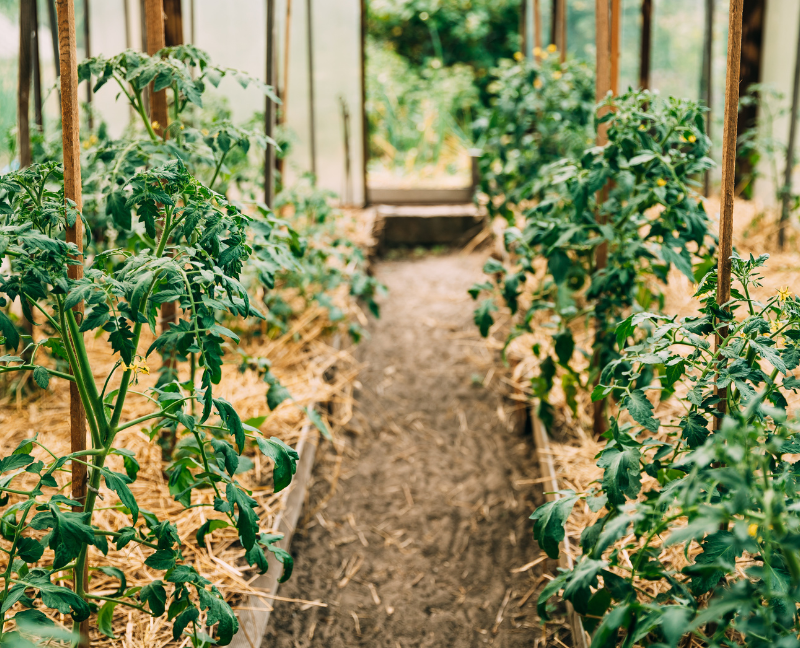In Part 1, we've given you 12 eco-friendly tips on how to make your home eco-friendly. Let's dive deeper into the helpful eco-friendly tips you may consider.
Tips On How To Make Your Home Eco-Friendly
1. Shorten Your Showers
Just because the water is warm doesn't mean you can waste time in the shower. Yes, it feels good for you, but not for the environment.
Simple lifestyle modifications can reduce this vital resource's waste. A typical shower uses 5 gallons per minute. Here are ways on how to save water:
- Take a quick bath. Shortening your shower time by two minutes can save 150 gallons each month.
- Turning off the water while soaping reduces water use. Maintaining your shower in under five minutes can save 1,000 gallons a year.
2. Use Artificial Grass
Recent eco-conscious households have switched to artificial grass to save water, air pollution, and carbon. Despite popular belief, artificial grass is environmentally friendly.
An artificial lawn can look like a lush, well-maintained lawn without the labor and cost. Water savings are one of fake grass' main environmental benefits. Watering lawns and gardens use over half of outdoor water.
3. Buying Energy-Saving Appliances
Choose energy-efficient appliances when replacing them for sustainable living.
Water use, greenhouse gas emissions, and the general reliance on fossil fuels and oils may all be decreased with energy-efficient appliances like washing machines and refrigerators. The fight against climate change will benefit from all of these initiatives.
4. Donate Used Items And Clothes
Have a garage sale or donate unused stuff and clothes instead of throwing them away.
Tip: Always use caution before discarding. Consider giving it a new home, donating it to a charity, or selling it at a yard sale, online ad, or consignment store.
5. Repair Leaky Faucets And Toilets
It might not look like a big deal, but leaky toilets and faucets waste a lot of water. Repairing leaks promotes sustainable living.
Also, as plumbing is part of every home inspection, selling your property requires extra caution. Leaks may indicate to purchasers that you rarely maintain the home.
6. Switch To Paperless
Paperless billing reduces the risk of losing bills and power before your movie marathon. It saves money on postage and printing and reduces paper consumption, which kills forests; thus, many billers give a discount for going paperless.
Recycling paper is essential as paper products make up over 40% of municipal solid garbage. Recycling paper uses less energy than making 'virgin' paper.
7. Close Any Gaps Around Windows And Doors
In winter, holes around doors and windows let outside air or heat escape in older homes. HVAC air escape openings in your home. This raises energy costs and carbon emissions.
Weather stripping around doors and windows reduces heating and cooling costs and improves energy efficiency. Hardware stores sell weatherstripping, which you can install in hours.
8. Install A Shower Head With Low Flow
Buying a low-flow showerhead will pay off when your next water bill is much cheaper. Older shower heads produce five gallons of water per minute, which adds up quickly if numerous people shower. Water savings lessen water heater needs, saving energy.
9. Consider Pre-Owned Items
Purchasing pre-owned items not only saves money but also helps reduce landfill waste. You may also rent instead of buying equipment, such as a leaf blower, ladder, or wheelbarrow.
So before making a big purchase, ask yourself: How often will I use this?
If you know that it's not going to be a lot of times, it makes sense to just borrow instead of buying them.
Here's the thing: living green doesn't mean settling for less; it's about choosing options that will save you and the environment you live in. After all, many used-good items are just as good as new ones.

10. Grow Your Own Vegetables
Growing your food in your backyard can enhance your eco-friendly eating habits. Cultivating your food can reduce the fossil fuels needed to import food from commercial farms and reduce food packaging waste from man-made plastics and cardboard, which travel hundreds and thousands of miles.
11. Use "Graywater" To Water Your Garden
Graywater comes from showers, baths, sinks, and washing machines, whereas blackwater is flushed down the toilet. Greywater can be used for landscaping, watering houseplants, and flushing toilets.
Unfortunately, modern plumbing combines the two as sewage. Unless manually diverted or captured, greywater becomes black water and is unusable until municipal water treatment.
If you don't use chlorine or bleach, a greywater system can reuse washed laundry and lavatory water to water trees and other plants.
12. Gather Rainwater
After one night of rain, 300 gallons of water can fall on your roof and pour into the street, accumulating oil, fertilizer, cigarette butts, and animal feces.
Rainwater collects in gutters, which flow into downspouts and the storage vessel. Rainwater collection can range from a rain bucket to massive cisterns that provide your residence with rainwater.
An expert can clip your gutters and direct rainfall into the barrel to create a rainwater collection system. The barrel can be connected to a hose or watering can to irrigate your plants or garden. This can help conserve water and live sustainably.
13. Install A Toilet With Low Flow
According to the EPA, the average family uses 30% of its indoor water for toilets. Ecology models can save 13,000 gallons of water annually and $90 on water costs nationwide. Bathrooms utilize roughly 30% of a typical home's indoor water.
Modern toilets use one gallon per flush, whereas older ones use six. To save money on your water bill, replace old toilets with water-efficient ones.
Do you have more tips to make a home eco-friendly? If yes, we'd love to hear them in the comments!

